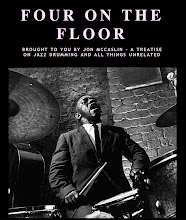
Well, the boxes are packed and the movers come tomorrow morning.
I've had a wonderful time in Toronto over the past two years but it's time to move on to a new chapter in my life and tomorrow I'm making the trek out West and moving to Calgary !
I have nothing but great memories from my previous time in Calgary (2004-2007). I first moved to Calgary from Montreal during the summer of 2004 (very last minute I should add!) to join the touring production of "Barrage". I spent a year and a half touring the world with this fiddle group and then when that ran it's course I opted to stay in Calgary and make a go freelancing and teaching.
Calgary is beautiful city full of great people and great musicians. I'm really looking forward to being back out West and contributing to the scene out there.
I already have many exciting opportunities coming up (not the least of which includes getting married this coming July!) and I'm looking forward to playing with the likes of the Brenan Brothers, Neil Whitford and Johnny Summers as well as a few jazz workshops where I'll be teaching.
I hope to reunite my old acquaintances and hopefully make some new ones along the way.
Sadly, I leave behind many great musicians in Toronto that I've worked with over the past couple of years....however, I promise to keep my Toronto roots intact and cheer for the Maple Leafs whenever they come to Calgary (!)

























